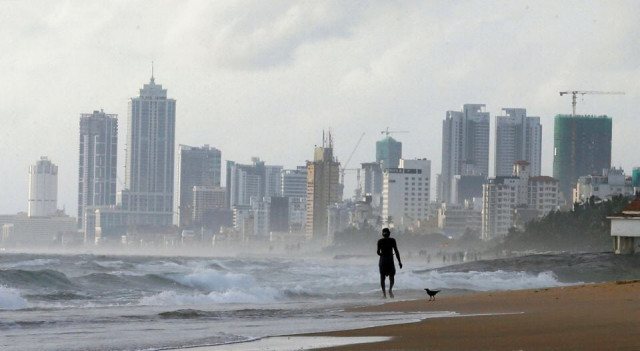Sri Lanka’s growth trajectory: some policy lessons
Sound economic policies result from conscious process of dialogue, analysis

Sri Lanka achieved the upper middle-income status from the World Bank in July 2019. It was an excellent achievement for the country. The economy secured a sustainable growth rate of around 5.5% on average from 2003 to 2019. It was expected that in 2034, the country would achieve a higher income status.
However, the growth trajectory could not be maintained when Gotabaya Rajapaksa, a militaryminded president (Financial Times), took oath. In 2020, the World Bank downgraded Sri Lanka to the lower middle-income status. The per capita income, which was the highest among Saarc nations, has declined since then.
This article discusses some of the factors responsible for the fall of Sri Lanka’s economy. First, sound economic policies were ignored by the incompetent government. For instance, the government cut taxes by around 40% in 2019 without reducing its spending. This caused the fiscal deficit to rise. Instead of reversing the policy or introducing measures to support fiscal balance, the government stubbornly maintained its tax policy to win political support.
Moreover, in April 2021, the government banned fertiliser for promoting organic food in the country. This resulted in a significant decline in agricultural production. This helps us understand how complicated the task of policymaking is and why a competent government is essential for this role. In addition to the tax cut and fertiliser ban policies, there are many other examples like rejecting International Monetary Fund (IMF) support and overspending on infrastructure, showing that the unprofessional leadership can harm the economy even more than a cyclical economic shock does.
Moreover, an institutional arrangement is needed that creates barriers in the way of those policymakers who do not realise that wrong economic policies have dire consequences for society and who cost economics over politics. Second, economic diversification is essential. Sri Lanka relies heavily on tourism and remittances. Both have significantly increased in the last two decades, but the export sector performance was comparatively weak.
A low level of economic diversification exposes a country to economic shocks, and the recent crisis in Sri Lanka gives its best example. During the Covid-19 pandemic, when the tourism sector suddenly came to a halt, the Sri Lankan economy could not face this shock and fiercely fell. To promote diversification, structural reforms are always advised. But they usually have political costs, so policymakers sometimes avoid them, even though they are necessary to boost productivity and growth in the economy. In the developing economies, this is a big issue.
Unfortunately, Pakistan’s reliance on remittances is similar to Sri Lanka. We have also been ignoring structural reforms for a long time since no government has enough courage to bear their political cost. Third, the political dialogue sometimes gives protection against the misguided economic policies. A strong political leader who curbs the opposition is more prone to faulty policies since he is not open to the feedback and criticism.
Therefore, the economic literature shows a positive relationship between the democratic process and sound economic policies. In Sri Lanka, President Gotabaya Rajapaksa’s government suppressed the opposition and imposed a military-led governance model. His heroism proved ineffective in policymaking since sound policies result from a conscious process of dialogue and analysis.
In Pakistan, we have observed almost the same governance model in the last government, and it also proved unsuccessful. Other lessons also need to be learnt, like the debt size is a most important signal for reforms in the developing countries, fiscal balance is essential, “Just in time (JIT)” policy framework needs to be applied in policymaking, etc. The most important thing is how a country maintains its growth sustainability, which is the biggest challenge to achieving the highincome status. Many countries have failed to overcome this challenge.
Sri Lanka seems to be one of them if the recent decline does not get proper remedies. Pakistani policymakers must learn from it since sound economic policies result from looking at the experiences of different countries.
THE WRITER IS A RESEARCH SCHOLAR AT THE PRIME THINK TANK AND A DOCTORAL RESEARCHER AT BRUNEL UNIVERSITY LONDON



















COMMENTS
Comments are moderated and generally will be posted if they are on-topic and not abusive.
For more information, please see our Comments FAQ